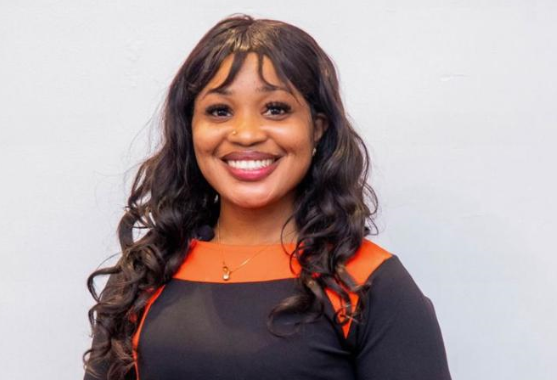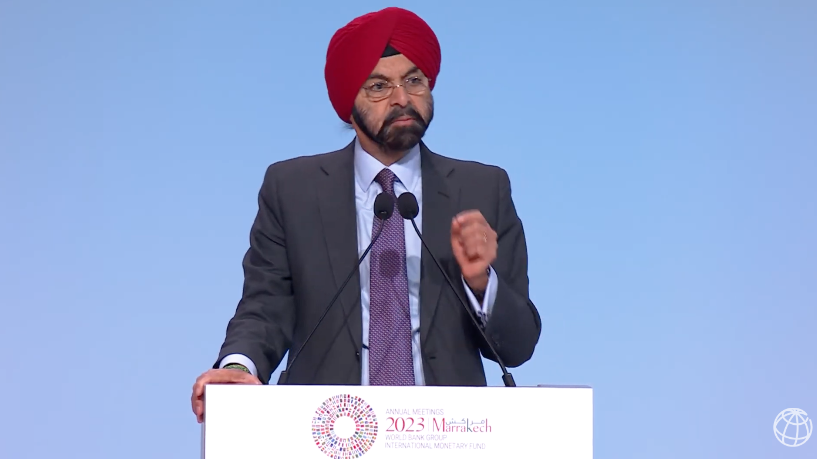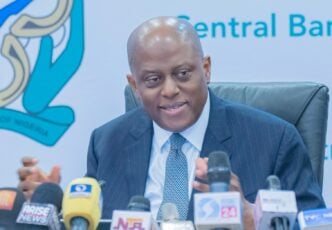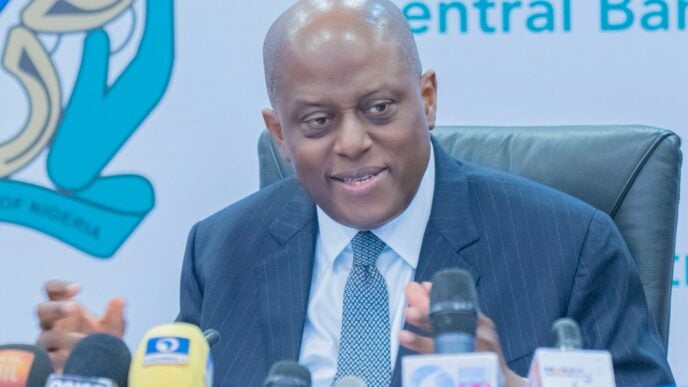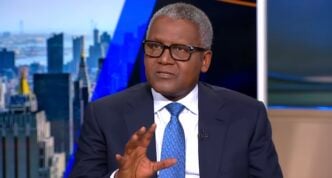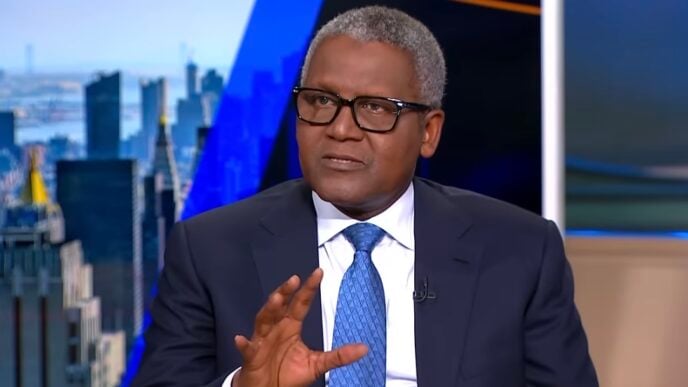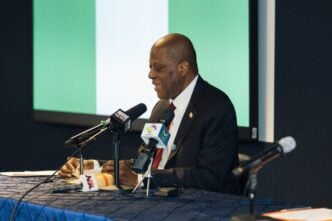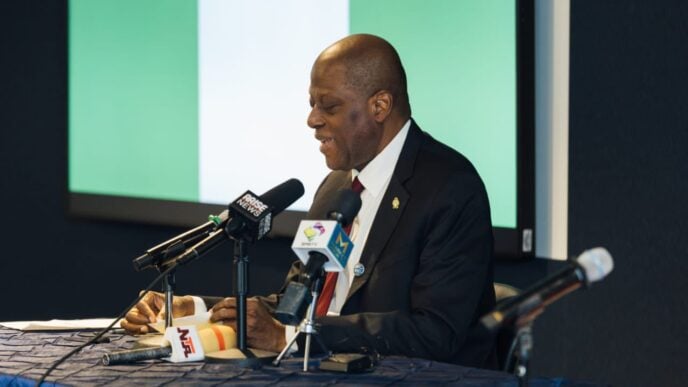Adaeze Keren Uzochukwu is a media and education specialist at Exinity, where she is responsible for coordinating all FXTM Academy seminars, webinars, and training programmes. In this interview with TheCable, she takes a deep dive into forex trading, the associated risks and opportunities. Uzochukwu also sheds light on the FXTM Edge platform and how it empowers forex traders to operate with discipline and control.
Forex trading remains largely unregulated in Nigeria, leaving many traders exposed to scams and unlicensed operators. How does FXTM navigate this gap in regulation, and what role should regulators play in protecting retail? Is it true that forex trading in Nigeria is still developing in terms of regulation?
It’s true that forex trading in Nigeria is still developing in terms of regulation, which is why the brand goes beyond minimum requirements by operating under a globally recognised regulatory framework, offering transparent processes, segregated client funds, and strict risk management standards. Most importantly, we emphasise education through the FXTM Academy, so traders are not just participating, but participating with knowledge and discipline. By combining regulatory compliance, security, and capacity building, we help ensure Nigerian traders can trade confidently in a safe and credible environment.
Despite training platforms like FXTM Academy, many retail traders still lose money. Do you believe forex trading is being oversold as a wealth-creation tool in Nigeria, and what responsibility do brokers carry in managing expectations?
Advertisement
You’re right, many retail traders still lose money, often because they approach trading with unrealistic expectations. We believe forex trading should never be sold as a get-rich-quick opportunity. It’s a skill that requires discipline, education, and emotional control. That’s why the FXTM Academy focuses on teaching risk management, trading psychology, and strategy development, not just profit-making. We have a responsibility to set realistic expectations and equip traders with the knowledge and tools to make informed decisions. Our goal is to help Nigerians trade smarter and more sustainably, not just trade more.
Nigeria’s FX market is marked by volatility, frequent policy shifts, and liquidity constraints. How do these conditions affect retail traders, and what strategies should they adopt to remain sustainable?
Nigeria’s FX market can be unpredictable due to policy changes and liquidity challenges, and these factors often affect retail traders’ confidence and consistency. At FXTM, we encourage traders to focus on risk management, diversification, and staying informed about both local and global market developments. Through the FXTM Academy, we teach traders to adapt their strategies, manage exposure, and trade with discipline rather than emotion.
Advertisement
Nigeria has a young, tech-savvy population, but also wide disparities in financial literacy and internet access. How does FXTM ensure its education efforts don’t just reach the urban elite but also genuinely empower less-privileged communities?
At FXTM, inclusivity is at the heart of our education mission. We design our FXTM Academy programmes to reach beyond major cities, which is why, while creating awareness for our events, we leverage local radio stations, which remain a trusted medium for many. We also use social media platforms to extend our invitations to interested learners. In addition, we produce educational video content to reach an even wider audience to ensure our training genuinely reaches those who might otherwise be left out.
Some critics say initiatives like FXTM Academy double as customer acquisition channels rather than pure education. How do you separate corporate social responsibility from business development in Nigeria?
That’s a fair question. While FXTM Academy does introduce people to the brand, its primary goal is education and empowerment, not sales. We believe that an informed trader is a more confident and sustainable one. Our training courses are completely free, and participants are not pressured to trade. Instead, we focus on building financial literacy, teaching risk management, and helping Nigerians understand global markets responsibly. For us, the Academy can be seen as part of our broader corporate social responsibility, giving back especially through knowledge and we trust that genuine education naturally builds long-term trust and loyalty.
Advertisement
The FXTM Edge platform promises faster execution and innovative tools from a Nigerian trader’s perspective. What specific problems does Edge solve that existing platforms failed to address?
FXTM Edge was created to solve key pain points Nigerian traders often face: slow execution, platform complexity, and limited access to diverse instruments. With FXTM Edge, traders get to enjoy ultra-fast trade execution, a simplified, web-based interface, and access to a wide range of markets, including forex, crypto, stocks, and indices. It’s designed for both beginners and experienced traders who want flexibility and speed. In short, Edge combines innovation with accessibility, giving Nigerian traders the efficiency, transparency, and trading experience they’ve always wanted in one platform.
Nigeria is one of FXTM’s strongest markets in Africa. What lessons has the company learned here that could shape how global brokers approach other emerging markets?
The Nigerian market has been a learning curve for us over the years. Firstly, it has taught us that education, trust, and localisation are key to success in any market. Traders here value transparency, practical learning, and a brand that genuinely understands their needs. Through our experience, we’ve learned that combining global standards with local relevance is important and helps to build stronger, long-term relationships.
Advertisement
FXTM has introduced AI-driven tools like the Trader Coach App. With AI evolving rapidly, do you see it helping traders make better decisions—or simply creating new risks?
AI is a powerful tool, and at FXTM, we see it as an enabler, not a replacement for human judgment. The FXTM Trader Coach App, for instance, helps traders make better decisions by offering personalised insights, performance analysis, and guided learning based on their trading behaviour. However, we also emphasise that AI should complement, not control, a trader’s strategy. That’s why we pair technology with education, teaching traders how to use AI responsibly and interpret data intelligently. Because when used the right way, AI enhances decision-making; the risk only arises when traders rely on it blindly.
Advertisement
With the rise of crypto, fintech wallets, and alternative investment channels, do you see retail forex trading retaining its appeal among Nigerian youth over the next five years—or will the market shift elsewhere?
While crypto and fintech wallets have captured attention, we believe retail forex trading will continue to hold strong appeal among Nigerian youth. What’s changing is how they trade. Young Nigerians want flexibility, transparency, and technology-driven platforms that let them explore multiple asset classes, including forex, crypto, and stocks, all in one place. That’s why FXTM is evolving with this trend through innovations like FXTM Edge and continuous education via the FXTM Academy. The future isn’t about choosing one market over another, but about equipping traders with the knowledge and tools to navigate all financial opportunities confidently.
Advertisement
